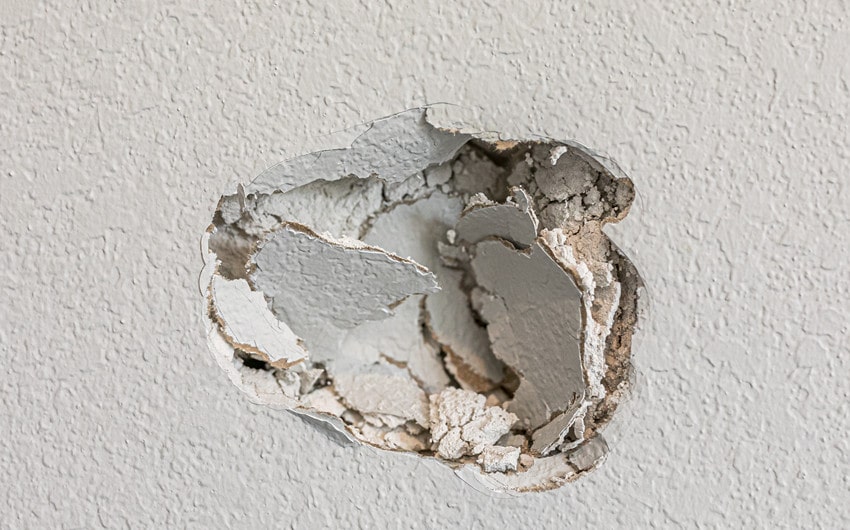Husband Punched a Hole in the Wall: Understanding the Situation and What It Means
When you search husband punched a hole in the wall, it usually comes from a place of concern, confusion, or even fear. Physical expressions of anger, like punching walls or breaking objects, are often overlooked as “just venting.” However, they can be serious warning signs about how a partner handles stress, conflict, and emotional regulation. Whether this happened once in a moment of heated frustration or is part of a pattern, it’s worth exploring what it means, why it happens, and what steps you can take if you find yourself in this situation.
Why Do Some People Punch Walls in Anger?
Punching a wall is often the result of emotions building up until they explode physically. Some common reasons include:
- Uncontrolled anger: Instead of expressing emotions verbally, a person releases them physically.
- Stress overload: High stress from work, finances, or personal struggles can trigger an outburst.
- Learned behavior: Some people grew up seeing violence or aggression as the only way to express strong emotions.
- Desire to intimidate: In some cases, punching walls or breaking objects is used as a show of dominance or to scare others.
- Frustration with communication: If someone doesn’t feel heard or understood, they might lash out physically rather than talk it through.
While punching a wall might not be the same as hitting a person, it’s still destructive behavior that signals difficulty managing emotions in healthy ways.
What It Means for Your Relationship
If your husband punched a hole in the wall, the meaning can vary depending on the context. For some couples, it may be a one-time incident tied to an especially stressful situation. For others, it might be part of a repeated cycle of unhealthy anger responses.
Here are some possibilities:
- Loss of control: It suggests he may not have tools to regulate anger effectively.
- Underlying issues: There may be unspoken frustrations or stressors fueling his behavior.
- Emotional safety concerns: Even if he never hits you, punching a wall can feel threatening and create fear in the home.
- Communication breakdown: Resorting to physical outbursts often points to a lack of constructive communication skills.
Regardless of intent, such actions change the atmosphere in a relationship. They can cause you to feel unsafe or on edge, waiting for the next outburst.
Is It Abuse?
A key question many partners ask is whether wall-punching counts as abuse. While it may not be physical abuse directed at you, it can fall under intimidation or emotional abuse, especially if it makes you feel threatened. The act can send the message: “If I can do this to the wall, imagine what I could do to you.”
It’s important to take your feelings seriously. If you feel scared or unsafe, those feelings are valid, even if he claims “it’s just the wall.”
Possible Consequences of Wall-Punching
Punching a wall isn’t just an emotional outburst; it has real consequences:
- Injury: Many people break or sprain their hands when hitting walls.
- Property damage: Holes in drywall and broken furniture create expensive repairs.
- Emotional damage: Living with someone who responds violently to frustration can cause anxiety, stress, or trauma.
- Relationship strain: Repeated outbursts can erode trust, respect, and emotional intimacy.
These consequences add weight to the need for addressing the behavior instead of brushing it off.
How to Address the Situation
If your husband has punched a hole in the wall, here are some steps you might consider:
1. Talk When Calm
Choose a time when neither of you is upset to express how the outburst made you feel. Use “I” statements, such as:
- “I felt scared when you punched the wall.”
- “I worry about what this behavior means for us.”
This shifts the focus from blame to your emotional experience.
2. Encourage Healthy Outlets
Suggest alternatives for managing anger, such as:
- Exercise, like running or boxing at a gym.
- Breathing techniques or mindfulness practices.
- Talking about stress before it builds up.
3. Recommend Professional Help
Anger management classes, therapy, or counseling can teach better coping strategies. Sometimes, unresolved trauma or stress drives destructive reactions.
4. Set Boundaries
It’s okay to set firm boundaries:
- “I cannot live in a home where walls are punched during arguments.”
- “If this happens again, we need to seek professional help together.”
Boundaries are about protecting your safety and emotional well-being.
5. Consider Your Safety
If you ever feel unsafe, trust your instincts. Have a plan for where you can go if the situation escalates. Contact support services or hotlines if necessary.
When to Seek Outside Help
If this was a one-time event followed by genuine remorse and a commitment to change, it may be possible to work through it with communication and counseling. However, if wall-punching becomes frequent, is used to intimidate, or is accompanied by other forms of verbal or physical aggression, it’s critical to seek outside support.
Resources include:
- Therapists or counselors specializing in anger management.
- Domestic violence hotlines, even if you aren’t sure it counts as abuse—they can provide confidential guidance.
- Support groups for partners dealing with anger-related behaviors.
Moving Forward
Every relationship has moments of conflict, but how conflict is handled defines its health. A husband punching a hole in the wall is not just “letting off steam”—it is a destructive choice that signals the need for change.
Moving forward may involve:
- Honest conversations about the behavior.
- Professional help to learn better anger-management strategies.
- Couples counseling to improve communication.
- Personal reflection about what you need to feel safe and respected.
Closing Thoughts
If your husband punched a hole in the wall, it’s natural to feel shaken, concerned, or even frightened. While it may not have been directed at you, it still affects your sense of safety and stability in the relationship. Occasional human mistakes can happen, but ongoing destructive behavior needs to be taken seriously.
The important thing is not to ignore it or dismiss it as “just frustration.” Address it directly, seek healthy solutions, and protect your own well-being. Healthy relationships are built on respect, trust, and constructive communication—not fear or intimidation.






